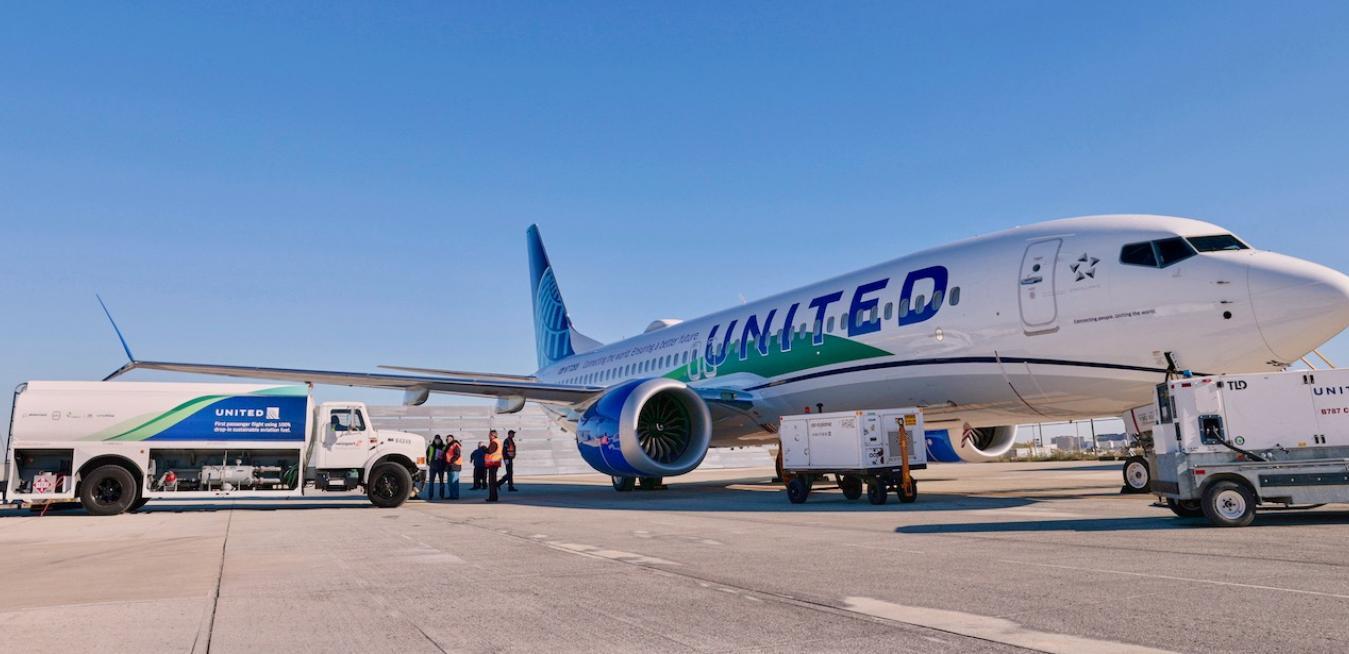The shift to sustainable fuels in the aerospace sector passed another milestone last week when a United Airlines 737 MAX 8 airliner took to the skies with one of its two LEAP-1B engines running on 100-percent Sustainable Aviation Fuel (SAF).
The demonstration occurred on December 1 as part of a scheduled flight from Chicago’s O’Hare to Washington’s Reagan National Airport with 115 passengers aboard, including United CEO Scott Kirby and GE Aviation CEO John Slattery. The LEAP-1B engines were developed by CFM International, which is a 50-50 partnership of GE and Safran Aircraft Engines.
SAFs are intended as a substitute for conventional aviation fuels and use plant- or animal-based fats and oils, solid domestic or commercial wastes, food scraps, packaging materials, algae, carbon dioxide, and similar items rather than petroleum as the basic raw material. In this way, net carbon emissions can be reduced while providing the kind of energy-dense fuels required for long-distance air travel.

GE Aviation
Under standards set by the American Society for Testing and Materials (ASTM), in normal operations SAFs are only allowed in a blend of up to 50 percent mixed with conventional aviation fuel. However, the SAF used in the demonstration flight was almost chemically identical with Jet A and Jet A-1 fuel.
For the flight, one tank was filled with 500 gal (1,893 L) of SAF and the other with conventional fuel. The goal is to produce an SAF that can be used in current jet engines without any modifications to them or the airframe. However, this is a regulatory as well as an engineering problem, so standardized industry specifications are needed to okay 100-percent SAF.
GE Aviation is currently working with Emirates Airlines to test a commercial craft using only SAF next year.
“Today’s SAF flight is not only a significant milestone for efforts to decarbonize our industry, but when combined with the surge in industry commitments to produce and purchase alternative fuels, we’re demonstrating the scalable and impactful way companies can join together and play a role in addressing the biggest challenge of our lifetimes,” says Kirby.
Source: GE Aviation
Source of Article